
Developer: North Star Digital Studios
Publisher: North Star Games
Platform: Android, iOS
Tested on: Android
Oceans Lite – Review
Given that it’s not as easy to get people around the table these days, we see a lot of digital versions of board game classics increase in popularity, as people can play online while talking over platforms like Discord or Zoom. Following this trend, lesser-known tabletop games are also moving to PC, consoles and smart devices at an increased rate. One of those newer players is the subject of today’s review: Oceans. Oceans started life as a fantastic board game, with a very decent score on BoardGameGeek. North Star Digital is now bringing their fish-themed engine building title to Android. Is Oceans a title worth diving up or do things smell fishy?
Story
There’s no real story present here, although the campaign does at least do a decent job of explaining the context of the game. Oceans is all about prehistoric ocean life, with the first half of a game taking place in the pre-Cambrian era, and the second half taking place right after the Cambrian explosion. If you’re unaware, this event took place a whopping 541 million years ago, and it saw the rapid evolution and emergence of animals as they took over from single-celled organisms.
Graphics
The visuals here make excellent use of North Star’s very recognizable watercolor art style. The game is one of the best-looking digital board games out there thanks to the pastel-tinted art that is featured on the cards. Juxtaposed against this, however, is the cartoonish-looking explorer character that also made an appearance in Evolution, North Star’s other digital board game. This time, the character takes on the guise of a diver, and while we’re still not convinced that the exaggerated comic style used for this guy fits the rest of the game’s aesthetics, the design works better here than it did in Evolution.
Sound
As this is an Android release that is suited to pick-up-and-play style gameplay, it’s important that the game offers a pleasant experience whether the sound is on or not. We’re pleased to say the soundtrack is soothing and relaxing, but isn’t integral to enjoying the game, so you can simply play the game while listening to your own favorite playlist or podcast. That said, the music is still very much worth a listen. It’s appropriately reminiscent of the music you’d hear in a documentary about sea life and even resembles the OST of Finding Nemo at times.
Gameplay
In Oceans, you take control of the various fauna that inhabit the prehistoric seas. The aim of this digital board game is to create a thriving and adaptable underwater ecosystem. By doing so, you’ll earn points, and whoever gets the best score is crowned the winner. Just like the sister game, Evolution, Oceans exists not just as a digital game but as a physical board game as well. The similarities don’t end here either: both games feature very similar mechanics. The main difference here is that a game of Oceans takes place in two distinct phases, with the second phase providing a very different and much faster-paced variant of the first phase.
When your turn starts, you play a card to either generate a new species or add a new trait to an existing one that you generated in an earlier turn. Each species can have up to three traits, and these will affect how well your aquatic creatures survive in the cruel depths of the ocean. After playing cards, your fishy friends will move on to feeding, either by grazing from the reef, or in the case of predatory fish, by chomping down on other players’ species. You’d think that the best strategy here is to grab as much food as possible, as this is the aim in Evolution, but here it’s important that you don’t overfeed. Feeding causes populations to grow and if your school grows too large, you’ll end up losing half of it to the effects of overpopulation. After feeding, fish will also age. Here you’ll lose one fish from each of your species, to represent the elderly part of the population dying, and any fish discarded in this way will count towards your final score.
If you lose your final fish, then that specific species goes extinct and any attached trait cards are lost. The game represents the ebb and flow of nature in a way that feels natural and makes sense. The first half of a round of Oceans allows players to build up an effective ecosystem with species that work together. This is all preparation for the second half, however, once the Cambrian Explosion happens, the pace picks up. Not only do players get to play two cards instead of one but species will also age twice as fast. Additionally, the aptly named Deep Cards come into play. Deep Cards bring unique and advanced traits to your fish species, but they require you to sacrifice parts of your population to play them. It’s arguably both the most strategically challenging and fun part of Oceans. After playing a few games, you’ll tend to work out the best strategies for the first phase of the game, but once the Deep Cards are unleashed, the game really shines.
The game features a fun little campaign, and as we mentioned in the graphics section of the review, the very same explorer from North Star’s other game makes an appearance here. We were a bit unimpressed with the AI, but according to the developer, the AI is programmed to learn so if everything goes well, you’ll find a more challenging opponent as time goes on. Additionally, while the base game itself is free, North Star has already added paid card packs. If Oceans is successful, then we expect the game to receive regular updates that expand the available cards. If executed well, then there’s a decent chance that Oceans evolves into an LCG that is worth revisiting over and over.
That said, we do have a few nitpicks. The game isn’t always as responsive as it should be, especially when it comes to dragging cards from your hand onto the playing field or when trying to read a card’s description. If you’ve played the board game and are expecting the same experience, be aware that the digital version of Oceans only has a limited selection of cards for now, although we expect the full deck to make an appearance eventually. Multiplayer is limited to pass & play as well, for now at least. So, if you’re not a fan of that and would rather have everyone play on their own device, then that’s something to keep in mind. Hopefully, these remarks can be fixed in the future, as Oceans still has plenty of room to evolve into an even better version.
Conclusion
Overall, Oceans works much better as a digital game than Evolution did. The dual-phase gameplay adds a neat twist and the prospect of intelligent AI and additional cards bodes well for the game’s longevity. Given that you can get the base game for free, there really is no excuse not to give Oceans a chance if you have a smart device at your disposal, even if only to give the title a try.
Oceans Lite - Review,
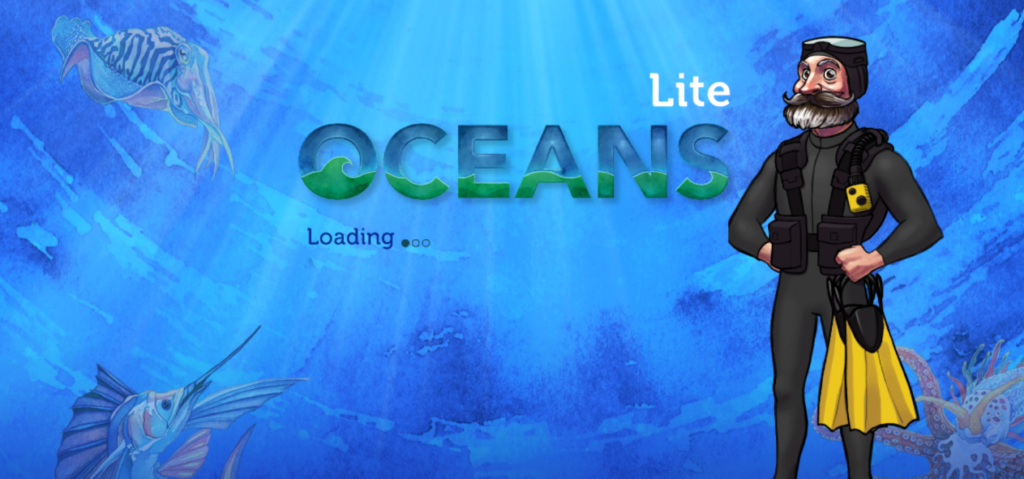
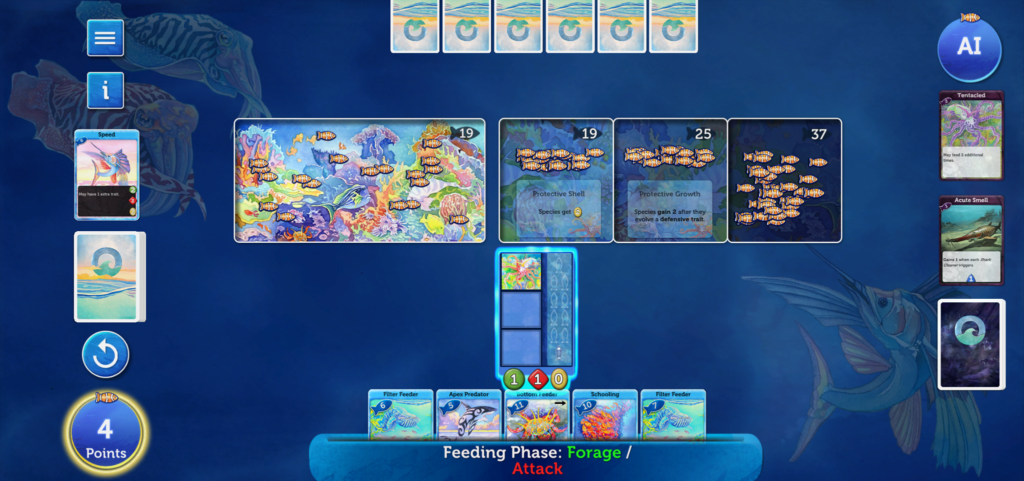
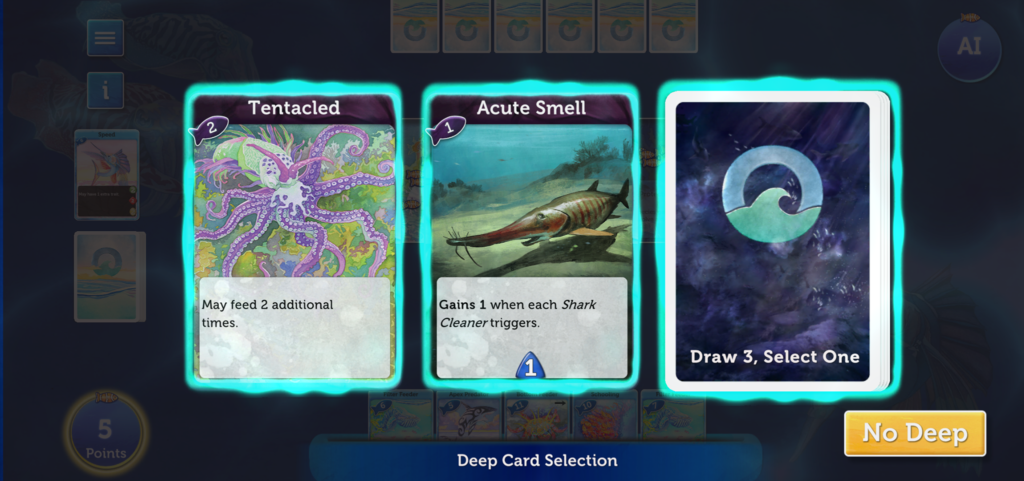
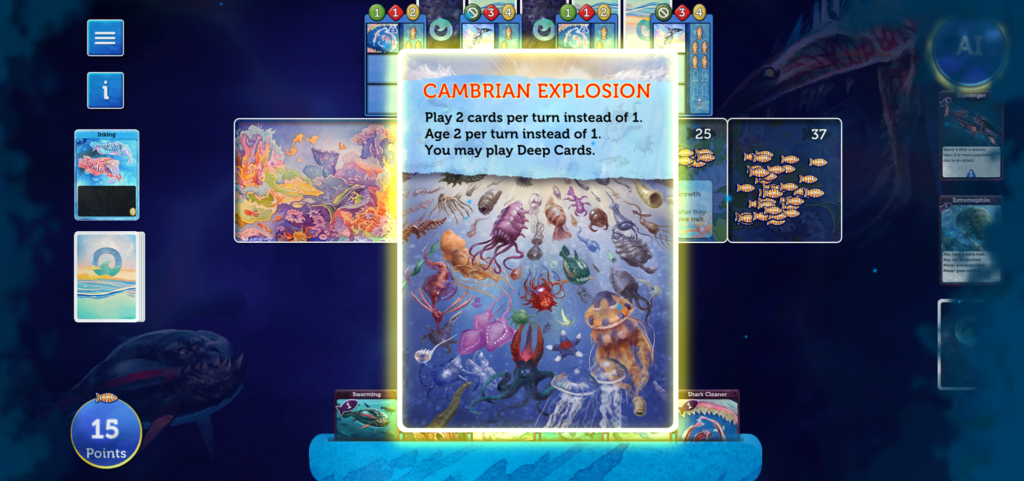
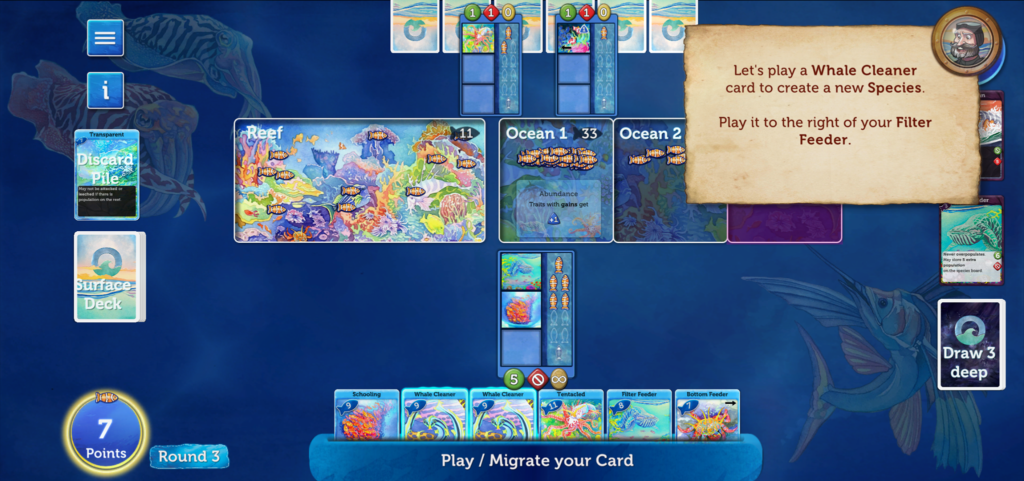
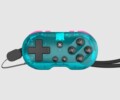
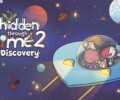
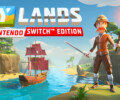

No Comments